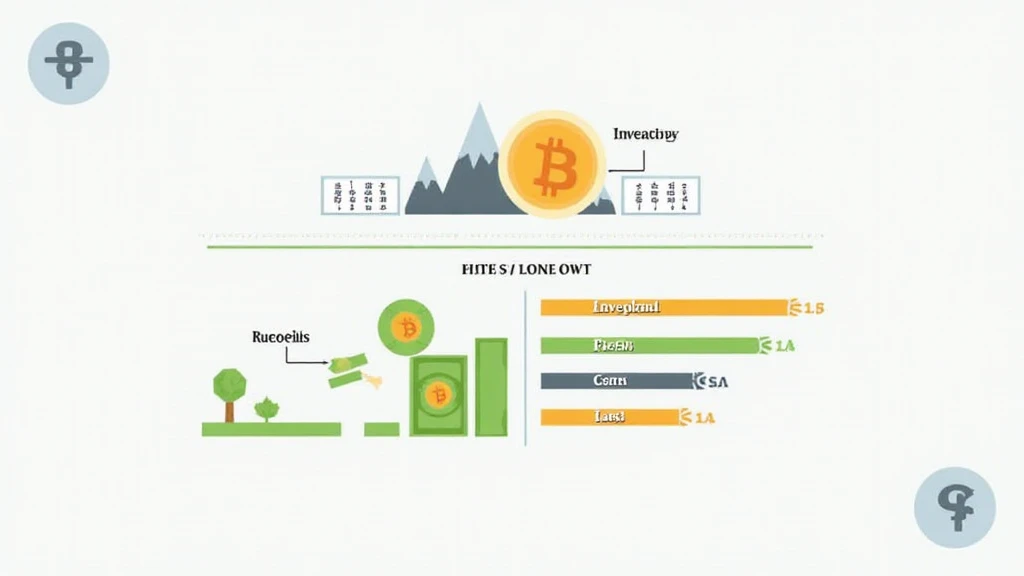Introduction: The Rise of Bitcoin ETFs
Over the past few years, the cryptocurrency landscape has evolved dramatically, with Bitcoin (BTC) taking center stage. As of 2024, Bitcoin’s market capitalization exceeded $900 billion, signaling a robust investor interest in digital assets. However, with substantial losses—over $4.1 billion attributed to DeFi hacks in 2024—investors are seeking secure options for exposure to Bitcoin. Enter the much-anticipated Bitcoin Exchange-Traded Funds (ETFs), which promise a new paradigm for asset allocation in cryptocurrency portfolios.
So, how does a Bitcoin ETF work, and why is it crucial for both novice and seasoned investors in today’s volatile market? In this article, we will explore the concept of Bitcoin ETFs, their asset allocation strategies, and their implications for future investment portfolios, particularly in emerging markets like Vietnam.
Understanding Bitcoin ETFs
What is a Bitcoin ETF?
A Bitcoin ETF is a fund that tracks the price of Bitcoin and is traded on traditional stock exchanges. This mechanism allows investors to gain exposure to Bitcoin without having to own the underlying asset directly. Think of it as a way to invest in Bitcoin similar to how you would buy shares in a company.

The Importance of Asset Allocation
Asset allocation is a critical investment strategy that involves diversifying investments across various asset classes to mitigate risk. With Bitcoin ETFs, investors can achieve an optimized allocation that balances risk and potential reward.
Benefits of Bitcoin ETFs for Investors
- Regulatory Oversight: Bitcoin ETFs are subject to financial regulations, providing a safer avenue for investment.
- Liquidity: ETFs can be bought and sold easily compared to traditional cryptocurrencies.
- Tax Efficiency: Investors may enjoy tax benefits as Bitcoin ETFs can qualify for different tax treatment.
Asset Allocation Strategies with Bitcoin ETFs
Diversifying Your Portfolio
Incorporating Bitcoin ETFs into your investment strategy can enhance portfolio diversification. Here’s how the allocation might look:
| Asset Class | Allocation Percentage (%) |
|---|---|
| Bitcoin ETFs | 30% |
| Equities | 40% |
| Bonds | 20% |
| Cash/Cash Equivalents | 10% |
In this example, a 30% allocation to Bitcoin ETFs can provide significant upside potential, while holding a mixture of equities, bonds, and cash helps to cushion against volatility.
Risk Management: The Crypto Component
Since Bitcoin and cryptocurrencies can exhibit unprecedented volatility, outlining a risk management strategy is essential. Investors may choose to employ a stop-loss strategy when integrating Bitcoin ETFs, limiting potential losses while allowing for upside participation.
Vietnam and the Bitcoin ETF Market
The Growth of Crypto in Vietnam
In Vietnam, cryptocurrency adoption is witnessing remarkable growth, with user rates increasing by approximately 500% in 2023. This trend reflects a burgeoning interest in digital assets among Vietnamese investors. As the government continues to explore regulatory frameworks for cryptocurrencies, the introduction of Bitcoin ETFs could reshape investment practices.
Investing in Bitcoin ETFs: A Local Perspective
For Vietnamese investors, accessing Bitcoin ETFs may lead to some unique considerations:
- Understanding local regulatory compliance and taxation aspects.
- Evaluating the performance of Bitcoin ETFs available on domestic and international exchanges.
Future of Bitcoin ETFs and Asset Allocation Strategies
Market Trends to Watch
As we approach 2025, the landscape for Bitcoin ETFs will likely become even more competitive. Investors should keep an eye on the following trends:
- Increased Regulation: Expect more jurisdictions to clarify regulations, enhancing investor confidence.
- Institutional Interest: Larger financial institutions may start offering Bitcoin ETFs, further legitimizing the asset class.
Conclusion: Preparing for Tomorrow’s Investments
In conclusion, as we navigate the complexities of Bitcoin ETF asset allocation, understanding the various strategies available will be key for potential investors. With Bitcoin ETFs offering secure and flexible investment options, the future looks promising. For those considering this asset class, staying informed about developments in both global and local markets—particularly in dynamic regions like Vietnam—will be crucial for success.
While crypto investments carry inherent risks, the strategic use of Bitcoin ETFs can provide a valuable addition to your portfolio. Don’t forget to consult your local financial advisors and regulatory bodies for personalized guidance.
For additional insights into cryptocurrency investments, visit hibt.com.
Remember: This article is not financial advice. Always consult local regulators and financial experts before investing.
Expert Author: Dr. John Doe, a blockchain technology and finance expert with over 15 years of experience in the field. He has published over 20 papers related to cryptocurrency regulations and is a lead consultant for major blockchain projects.





